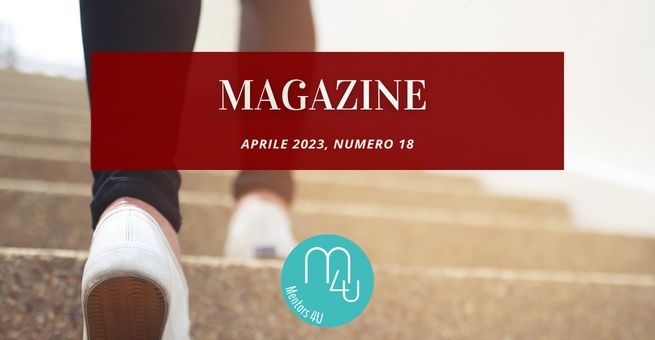Tell us a little bit about yourself, your background, and your studies. How did you get in touch with the reality of M4U Colombia?
In 2015, I won a full national scholarship called "Ser Pilo Paga" to study law. Later in 2016 I was selected to lead a youth association for young leaders at a national level called "Pilo Society". Which I led for over two years. During that time I focused on leading the foundations of the program and to increase student participation.
The main objective of this organization was to promote more and better leadership within the program, the implementation of strategies for academic success, and the development of values such as social co-responsibility through social volunteering.
Our efforts to improve student's academic success, took a high point when we met the M4U Mentoring program in the year 2017-2, when I ran into Co-Founder Daniel Uribe through Facebook, who was looking to connect with most outstanding students of the "Ser Pilo Paga" scholarship. Taking into consideration my previous experience in leadership, I expressed to him my interest to collaborate on our shared goals, so I took on the task of linking M4U with the management of the scholarship program and the Ministry of National Education, to which they pleasantly agreed to work together, which finally meant that over 100 of scholarship holders from all over the country could receive personalized mentoring.
In the year 2022, M4U Colombia creates a partnership with my Alma Mater, the Universidad del Norte thanks to the dean of my division Alberto Madero, partnership to which I was invited to be one of the leaders of its implementation process, due to my quality as mentee, graduated from the university and due to my high capacity for leadership. During that time, we were able to benefit 52 students as a team, where 49 successfully completed the entire program. A fact that makes me feel proud was that we were able to accomplish one of the highest compliance standards in Colombia, and since then I've been part of the M4U Colombia team.
Universities, yesterday and today: do you think universities in Colombia are able to adapt to an ever-changing environment? If so, how and thanks to which instruments?
Colombian universities have been facing various challenges in recent years due to the rapid changes in technology, globalization, and the demands of the job market. However, many universities in Colombia have demonstrated their ability to adapt to these changes and prepare their students for the future.
1) One of the instruments that universities in Colombia have used to adapt to the ever-changing environment is the integration of technology into their teaching methods. Many universities have adopted online learning platforms, to provide flexible and accessible education for their students.
2) Universities in Colombia have implemented curricular reforms to align their academic programs with the needs of the labor market.
3) Universities have carried out processes of internationalization of their academic programs and their students to allow their students to understand their training from a more globalized and multicultural perspective.
4) Promote research and innovation.
5) Being able to identify the demands of the labor market, by market studies, having the immense responsibility to educate professionals who can address them.
6) Achieve the quality standards required by government
In each of these instruments, most Colombian universities have focused their efforts to include them in their action plans.
How is your university helping you develop the soft skills necessary to be competitive in today’s job market?
Uninorte is focused on the comprehensive education of its students, which is why it pays special attention to the development of life skills, offering courses, workshops and extracurricular programs. Also it encourages student’s participation in projects and activities that develop them.
At the same time, it has a very strong focus on the coordination of students’ leadership, conformed by more than 30 diverse and inclusive groups where everyone can feel comfortable and included. These groups represent a wide variety of topics and interests, from students who like E-Sports and leisure activities such as trekking to the one who likes to defend human, environmental, and gender rights, the implementation of volunteering, research groups, and academic programs to organize forums, events, and cultural exchanges.
The Student Welfare Department has developed various programs that enhance not only the academic performance of its students, as well as their emotional and social development, but also the development of skills that have been shown to lead to better performance in the workplace.
How would you describe the difference between private and public school systems, in terms of an all-round preparation?
In Colombia, there are several studies and instruments to measure the educational quality of students and their institutions, however, the most relevant one is the Saber 11 state test, which is a standardized exam that is applied to high school students throughout the country, both in public and private schools. The results of this test have shown a gap in the quality of education between public and private institutions, although there are exceptions in both categories.
In the Saber 11 tests (2021), the national average score was 248.4 for private schools and 229.6 for public schools. In addition, the percentage of students who obtained scores higher than 300 (considered excellent) was higher in private schools than in public schools.
Additionally, we can divide their differences into three aspects: funding, infrastructure, and teaching staff. The private school system in Colombia demonstrates that it mostly offers a higher quality education. This translates into better comprehensive preparation of students, who can have access to a variety of extracurricular activities and high-quality academic programs, fostered by the funding of parents and the mission objectives agreed upon jointly in the private institution. However, the public system has the advantage of free and accessible education for a larger number of students, while the support of extracurricular activities and high-quality academic programs is subject to the initiatives of teachers, institutional support from public authorities in each territory, as well as private and international cooperation management carried out by public institution leaders.
In your opinion, what will be the new challenges for universities in the next 5 to 10 years, and how should universities best prepare to respond to them?
The current challenges that are facing our universities today will increase in the coming years are:
1) Attract and retain students in their academic models and methodologies, where work and study at home are beginning to set the standard due to the great flexibility and cost reduction it generates.
2) Fighting a competition with the nascent online education that grows stronger every day. In the Colombian case, platforms such as: Platzi, Crehana, Education for all are taking an important part of the educational market and great recognition as study centers. Which tend to be cheaper, faster to get a degree and well-developed to provide the technical knowledge a student needs to start working sooner.
3) Find new sources of financing, given the lack of state financing, especially in Colombian public institutions which in many cases don't have a proper infrastructure to operate with.
4) Constantly adapt and update technological instruments.
In order to mitigate these challenges, universities must invest in technology, develop online programs, diversify funding sources, and create personalized educational experiences, thus universities will be better prepared for the future, which I believe has already arrived.



